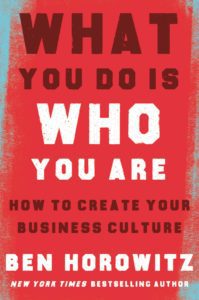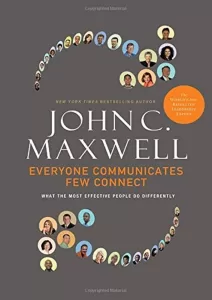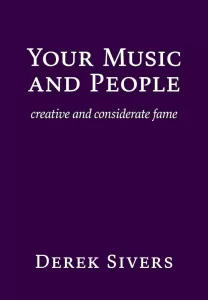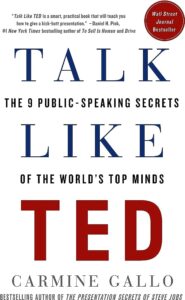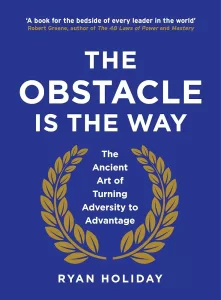Book Review: “What You Do Is Who You Are”
Book: What You Do Is Who You Are by Ben Horowitz
Reviewer: Bobby Powers
My Thoughts: 8 of 10
What You Do Is Who You Are is arguably the most unique business book I've ever read. I guess I shouldn't be surprised. Horowitz has never been your typical suit-and-tie businessman. His first book (The Hard Thing About Hard Things) revealed Horowitz's brash, crass, hip-hop-driven business advice. He carries that same persona into this new book about business culture. Rather than approaching culture with overworn case studies, he supplies fresh stories from slave revolts, prison gangs, and historic battles that emphasize how to create and breed culture within a group.
What I Learned from the Book
Cultures are built on a daily basis. They're crafted by sharing memorable, counterintuitive virtues and stories, and they live or die based upon whether the team (especially those in charge) abides by those virtues. Every cultural norm has a respective downside: if you tell people to move fast, then you're potentially sacrificing quality. If you encourage your team to sell aggressively, then you are de-prioritizing integrity. And yes, if you have integrity as a stated value, then you're going to miss out on some sales. Every cultural norm comes at a cost, and many norms come into conflict in unexpected ways. Creating a strong work culture is a difficult but important task.
Selected Quotes and Ideas from the Book
What Is Culture?
- "So I asked myself, How many of the following questions can be resolved by turning to your corporate goals or mission statement?"
- Is the quality of this document good enough or should I keep working on it?
- Should I stay at the Four Seasons or the Red Roof Inn?
- Should I point out what my peers do wrong, or what they do right?
- Should I go home at 5 p.m. or 8 p.m.?
- Should we discuss the color of this new product for five minutes or thirty hours?
- "The answer is zero. There aren't any 'right answers' to those questions. The right answers for your company depend on what your company is, what it does, and what it wants to be. In fact, how your employees answer these kinds of questions is your culture. Because your culture is how your company makes decisions when you're not there. It's the set of assumptions your employees use to resolve the problems they face every day. It's how they behave when no one is looking."
- "If you don't methodically set your culture, then two-thirds of it will end up being accidental, and the rest will be a mistake."
- "Culture is not like a mission statement; you can't just set it up and have it last forever. There's a saying in the military that if you see something below standard and do nothing, then you've set a new standard. This is also true of culture--if you see something off-culture and ignore it, you've created a new culture."
- "Companies--just like gangs, armies, and nations--are large organizations that rise or fall because of the daily microbehaviors of the human beings that compose them."
- "If somebody behaves in a way you can't believe, remember that your culture somehow made that acceptable."
Create Shocking Rules
- "The more counterintuitive the leader's decision, the stronger the impact on culture."
- You want to create cultural rules so surprising that they stand out in people's minds.
- Principles for creating shocking rules:
- "It must be memorable. If people forget the rule, they forget the culture."
- "It must raise the question 'Why?' Your rule should be so bizarre and shocking that everybody who hears it is compelled to ask, 'Are you serious?'"
- "Its cultural impact must be straightforward. The answer to the 'Why?' must clearly explain the cultural concept."
- "People must encounter the rule almost daily. If your incredibly memorable rule applies only to situations people face once a year, it's irrelevant."
- Examples of shocking rules --> Their purpose
- Tom Coughlin, coach of the New York Giants: "If you are on time, you are late." --> Wanted his players to be disciplined
- Diane Green, co-founder of VMware: "Partnerships should be 49/51, with VMware getting the 49." --> Wanted her employees to realize that one-sided partnerships don't work, they needed to truly find a mutually beneficial win when negotiating with partners
- Mark Zuckerberg, founder of Facebook: "Move fast and break things." --> Speed is the most important thing, be innovative
- John Morgridge, CEO of Cisco from 1988 to 1995: "If you cannot see your car from your hotel room, then you are paying too much." --> Be frugal, business travel is about meeting customer needs--not enjoying fancy perks
Management's Impact on Culture
- "Your view or your executive team's view of your culture is rarely what your employees experience."
- "No matter how well designed, carefully programmed, and insistently enforced your cultural elements are, inconsistent or hypocritical behavior by the person in charge will blow the whole thing up."
- "Think carefully about what your flaws are, because you don't want to program them into your culture--or else leading by example will bite you in the ass."
- "It is much easier to walk the talk when the talk is your natural chatter...A company's culture needs to reflect the leader's sensibilities. No matter how much you want a learning environment or a frugal company or a place where everyone works late, you will not get one unless that is what you instinctively do yourself."
Other Insights
- "The best way to understand your culture is not through what managers tell you, but through how new employees behave. What behaviors do they perceive will help them fit in, survive, and succeed? That's your company's culture. Go around your managers to ask new employees these questions directly after their first week."
- "In any human interaction, the required amount of communication is inversely proportional to the level of trust. If I trust you completely, then I require no explanation or communication of your actions at all, because I know that whatever you are doing is in my best interests."
- "Breakthrough ideas have traditionally been difficult to manage for two reasons: 1) innovative ideas fail far more than they succeed, and 2) innovative ideas are always controversial before they succeed. If everyone could instantly understand them, they wouldn't be innovative."
- "Hierarchies are good at weeding out obviously bad ideas. By the time an idea makes it all the way up the chain, it will have been compared to all the other ideas in the system, with the obviously good ideas ranked at the top. This seems like common sense. The problem is that obviously good ideas are not truly innovative, and truly innovative ideas often look like very bad ideas when they're introduced."
- "Cultural rules can often become bloated sacred cows. Everyone tiptoes around them, trying to respect the culture--and then the cows topple and crush you. Strategies evolve, circumstances change, and you learn new things. When that happens, you must change your culture or you will end up pinned beneath it."
Think you’d like this book?
Other books you may enjoy:
The Culture Code by Daniel Coyle
Creativity, Inc. by Ed Catmull with Amy Wallace
All In by Adrian Gostick and Chester Elton
Other notable books by the author:
The Hard Thing About Hard Things
